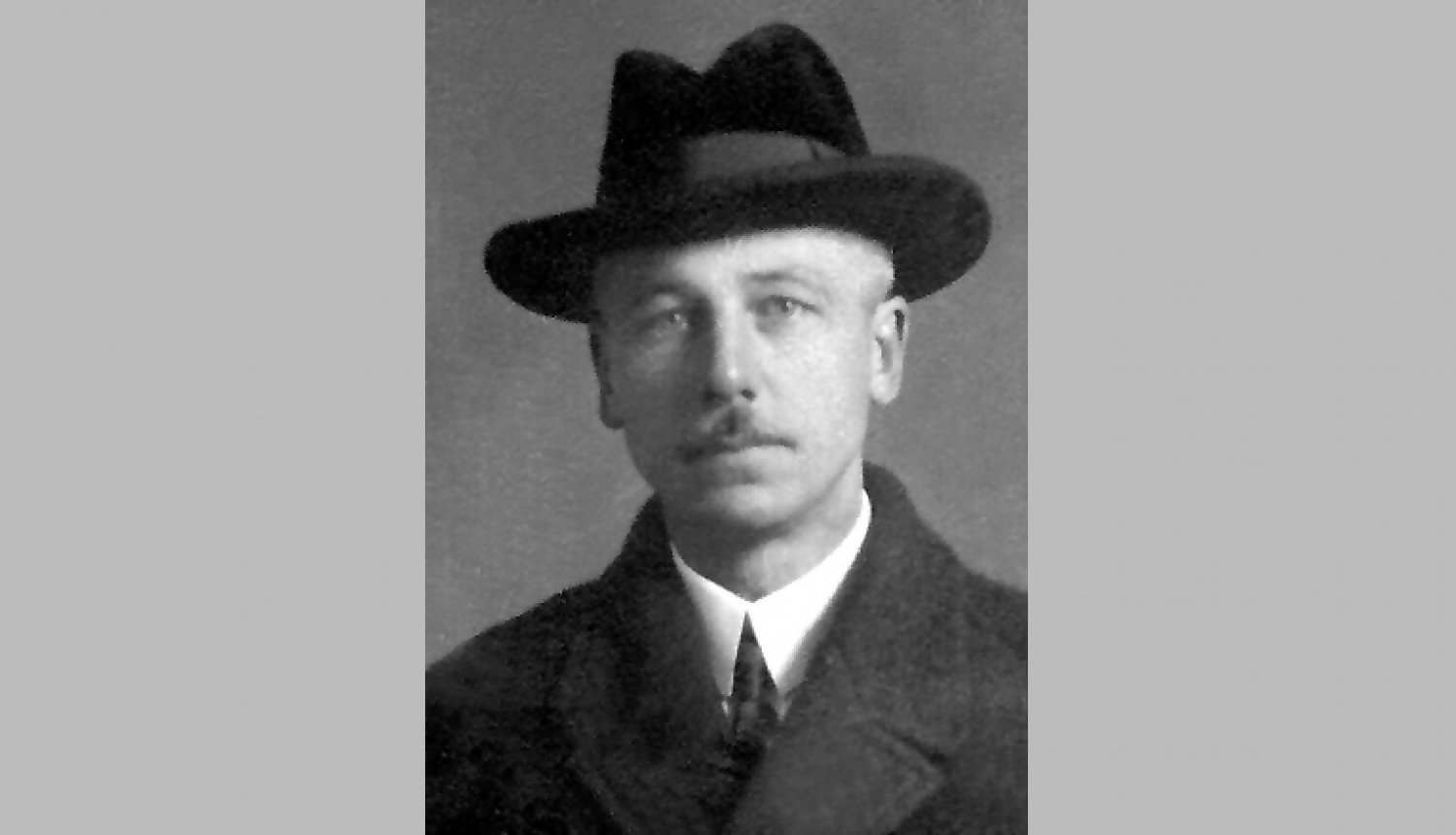July 2 is the date of birth of Jūlijs Straume (1874–1970) – one of the most fascinating and distinctive masters of Latvian applied art. He was born at Druviena, on “Ķempji” farm, and studied art in St. Petersburg and Paris. From 1907 to 1923 he lived and worked in Tiflis (Tbilisi since 1936) in the Caucasus, and collected items of applied art of the Caucasian peoples. He was one of the founders of the Caucasus Museum of Household Art, and later its director.
In 1916, Straume was awarded the title of Honorary Citizen of Tiflis.
Jūlijs Straume is also related to the Foreign Service, having served as acting Consul in Georgia from May 1921 to April 1922.
“..On leaving the post, Vice-Consul Mr Puriņš left me in charge of the Consulate of Latvia in Georgia to continue organizing the departure of refugees and to protect the interests of Latvian nationals who remain in Georgia”
From Straume’s report to the Ministry of Foreign Affairs as of 15 June 1921
(LVVA, 2570f., 14 apr., 1215 l., 27. lpp.)
After the Consulate was closed in 1923, Jūlijs Straume returned to Latvia, worked as a teacher of drawing, art and style history, furniture design and projects at Riga City School of Crafts, also in schools of general education. He popularized the eastern carpet weaving technique, ran carpet weaving courses and workshops at Riga City School of Crafts, the Latvian Women’s National League, even at Riga Termiņcietums Prison.
Straume’s works were on display in the Latvian applied art exhibitions in Brussels (1930), Oslo (1933), while at the International Exhibition of Decorative Art in Paris in 1925 his carpets were awarded a gold medal.
After World War II, Jūlijs Straume was appointed Director of the Museum of Riga History and Navigation, later an art historian and restorer at the History Museum.
Events dedicated to the 150th anniversary of Jūlijs Straume are held in Latvia, Georgia and Azerbaijan in 2024:
- On 21 June in Baku, in the National Museum of History of Azerbaijan, the Speaker of the Saeima of the Republic of Latvia, Daiga Mieriņa, unveiled an exhibition, “Jūlijs Straume – 150. Ornaments Through Cultures”.
- On 2 July, in the courtyard of the Art Palace of Georgia in Tbilisi a bust of Jūlijs Straume was unveiled, a conference held, an exhibition opened and a postage stamp released.
- On 26–27 July, Gulbene is hosting the 7th Divi Jūliji International Art Festival and an international research conference, “Divi Jūliji. Straume. 150”.




